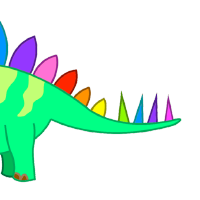00:00:09.040
Um, yeah, so this talk is about self-learning.
00:00:11.719
I first gave a version of this talk at RS Camp about a year ago.
00:00:14.200
It has evolved since then, and I’ve given it a couple of times. Hopefully, this will work well.
00:00:20.160
The topic of this talk came up because a friend of mine, Randy, asked me to give this talk at his workplace. I had posted a few things on Twitter about what I was learning and doing, and he thought that some of the junior developers at his workplace would find it useful.
00:00:32.320
So, let’s try to start. We already know everything we need to know, right? The web never changes, right? I can learn something new and fill the gaps in a week. I can learn a new language, a library, or a framework. Maybe it takes a little bit longer to learn things, but today I want to cover prerequisite concepts about learning.
00:00:57.760
There are a few things I’d like us to discuss regarding what you should do when you get started, strategies to get started, how to proceed, self-study techniques that I use, other styles of study that some people might find useful, and some suggestions and tools I utilize.
00:01:35.400
Let’s start with the prerequisite concepts. A few years ago, I was listening to a podcast by John Medina, a neuroscientist, who discussed how to help children succeed in learning. He shared a story about two kids—Johnny A and Johnny B.
00:01:58.280
Johnny A comes home with a report card showing an A, and his mom praises him, saying he's so smart. This leads Johnny A to associate being smart with success, meaning he feels pressured to keep succeeding, and when things get hard, he doubts himself and thinks he's not smart enough, leading to quitting.
00:02:40.080
In contrast, Johnny B receives the same grade but is told, 'Well done, you worked hard.' This leads Johnny B to associate effort and learning with success, so when things get tough, he thinks, 'I just need to work a bit harder to solve this.' This discussion brings us to the idea of a fixed mindset versus a growth mindset.
00:03:00.440
In her talk yesterday, Sha discussed Carol Dweck's book, 'Mindset: The New Psychology of Success,' where she explains that any skill can be learned. No one is simply born good at something, nor are others born to fail. It requires hard work, and with effort, anyone can learn and improve.
00:03:43.680
People with a fixed mindset believe their abilities are inherent, meaning they think they can't change their capabilities. This feeling often leads them to protect their status, taking fewer risks, which ultimately slows down their learning.
00:04:02.240
On the other hand, those with a growth mindset embrace challenges and seek to push past their limitations. If we return to the story of Johnny A and Johnny B, Johnny A exhibits a fixed mindset from his upbringing, while Johnny B embodies a growth mindset.
00:04:26.400
Continuing with the concept of ongoing self-improvement, I believe that no matter what I already know, I can always learn something more. There are endless things to discover. I have been teaching scuba diving for ten years, given presentations, and run workshops, but I still believe there’s always room for improvement in how I present.
00:04:45.160
A few months ago, I attended a class to improve my presentation skills—why not? There's a book I started reading recently called 'Mastery' that discusses how to attain it. There’s a compelling quote that defines mastery: 'Mastery isn't reserved for the super talented or those fortunate enough to have gotten an early start; it's available to anyone willing to get on the path and stay on it, regardless of age, sex, or previous experience.'
00:05:12.640
This idea aligns with what we talked about regarding a growth mindset. One day, after yoga, I saw a sign at a nearby coffee shop that said, 'Don't limit your challenges; challenge your limits.' I found this motto fitting for our discussions.
00:06:01.079
When considering styles of learning, there are various approaches, including visual, linguistic, and auditory. For example, visual learners prefer learning through written language, while auditory learners thrive in classrooms and discussions. Kinesthetic learners, on the other hand, learn best by doing.
00:06:42.760
While many of the male colleagues I've worked with prefer immediate practical application, I tend to like to read a little more before jumping into hands-on practice. Another style includes face-to-face learning, so if you find that learning in a classroom is more effective for you, that's completely valid.
00:07:10.880
Your choice of learning style really matters, so figure out what suits you best and go with it. Perception of progress is essential. I find it challenging to push through until I reach the halfway mark, but once there, seeing the endpoint becomes more motivating.
00:07:42.160
When thinking of perseverance, grit is a combination of passion, perseverance, and self-discipline that propels us forward despite obstacles. There’s a belief that grit is not innate; instead, it develops like a muscle. We must pay attention when we face challenges to see how we respond.
00:08:21.240
I lived on a remote island with limited distractions, allowing me ample time for studies. But after moving to New York two years ago, with its bustling pace, I realized I needed to carve out dedicated time for learning.
00:09:15.600
When I was pregnant with my son Micah, I sometimes felt unmotivated to exercise, leading me to find ways to stay committed, such as going to classes. Finding a study group can also motivate you to learn something new, as it dedicates you to a group rather than just yourself.
00:09:53.880
Another key lesson I've learned is to be willing to take risks and embrace the emotional discomfort of making mistakes, as it's crucial for growth. Failures are guides leading us to improvement, but don't take them personally. Research shows that the best workplaces foster an environment of safety and interpersonal trust, promoting a culture where making mistakes is part of growth.
00:10:36.720
As we navigate hard and soft skills, hard skills often require structured instruction and practice, whereas soft skills rely on recognition and adaptation in various situations. As developers, we find ourselves recognizing patterns and applying them accordingly.
00:11:14.440
When defining the skills you want to develop, think about the type of skills—hard or soft—and set clear goals to facilitate progress. With a clear target, it becomes easier to work towards achieving that goal. Identify if your goals are internal or external so you can focus your learning on what you genuinely care about.
00:11:64.520
Setting deadlines is also crucial, as they enforce a sense of urgency and ensure that tasks are not continuously postponed. I recall attending an Ignite night in Sydney where a woman created a deadline party; she gathered friends to learn something new within six months, culminating in a presentation of what each had accomplished.
00:12:56.320
Creating challenges for yourself is important, too. I've found that without challenges, I can easily fall into a state of stagnation. Therefore, I strive to set challenges like public speaking or learning a new tool like Vim, which pushes me slightly outside my comfort zone.
00:13:40.960
Avoid making excuses for not learning, such as lacking time or worrying about your competence. Jonathan Mann, a musician, expressed that creating something mediocre is a stepping stone toward achieving better work.
00:14:27.700
Strategies for improving your skills include starting with small steps. When faced with a big feature at work, break it down into smaller, manageable tasks. Aim to find the 'learning zone'—neither too easy nor too difficult—where you can effectively stretch your abilities.
00:15:29.480
When learning something new, finding a mentor is beneficial. Look for someone who can guide you effectively, providing constructive feedback and helping you grasp the fundamentals.
00:16:33.320
Mistakes and successes should be openly acknowledged. After making a mistake, reflect on it critically, looking at both the error and when you get it right.
00:17:39.600
This reflection can be compared to retrospective sessions we have at work to evaluate our improvements. Also, when you achieve something, take a moment to savor that victory; it's important to feel good about your accomplishments.
00:18:29.160
At work, we use key performance indicators (KPIs) to track our progress. I’ve found it important to pause and appreciate how much I've learned, especially when comparing myself to others. You might sometimes feel inadequate, but looking back at your past achievements can be a great way to measure success.
00:19:34.440
When you get stuck, not progressing is natural. A learning curve often involves a plateau; when this happens, shift your method of practice to stimulate new insights.
00:20:26.440
I suggest doing things as they come. This approach ensures you deal with tasks as they arise rather than letting them linger. Many people have to-do lists that never get touched unless they proactively address them.
00:21:15.440
A few self-study techniques you might consider are to dedicate just a few minutes each day—five minutes daily is better than an hour once a week. Short, regular practice allows your brain to re-engage with problems more effectively.
00:22:01.360
Practicing daily can also help form habits more naturally than scheduling bigger blocks of time.
00:22:48.719
I find mornings to be the best time to study—before the day's distractions begin. It’s essential to focus, whether it's early in the morning or at whatever time you find yourself most alert.
00:23:23.480
Participating in the 100-day challenge is an excellent way to ensure you're continually learning. This can involve committing to a daily activity—whether it’s watching a specific number of instructional videos or practicing a skill for a set duration each day.
00:24:15.520
Creating a routine eases the path toward continuing your self-learning journey. Whatever works for you, just begin with a manageable commitment and progressively build from there.
00:25:02.800
Active reading is another technique I find beneficial. Instead of skimming through pages, take the time to highlight key points, write notes, and summarize what you've read to deepen your understanding.
00:25:30.320
Additionally, refactoring code provides another avenue for growth; even doing one small task each week can help reinforce what you learn.
00:26:10.320
Online courses, podcasts, and engaging with the community through events or study groups can also provide valuable learning experiences.
00:26:54.980
As we wrap up, remember to prioritize your well-being. Effective learning often requires rest; ensure you’re well-rested to absorb new information better.
00:27:34.160
Our capacity to learn can heavily depend on our health and well-being, especially if we have various responsibilities.
00:27:56.519
As you navigate self-learning, keep in mind that it's not a sprint; it's a marathon.
00:28:07.360
Thank you!










